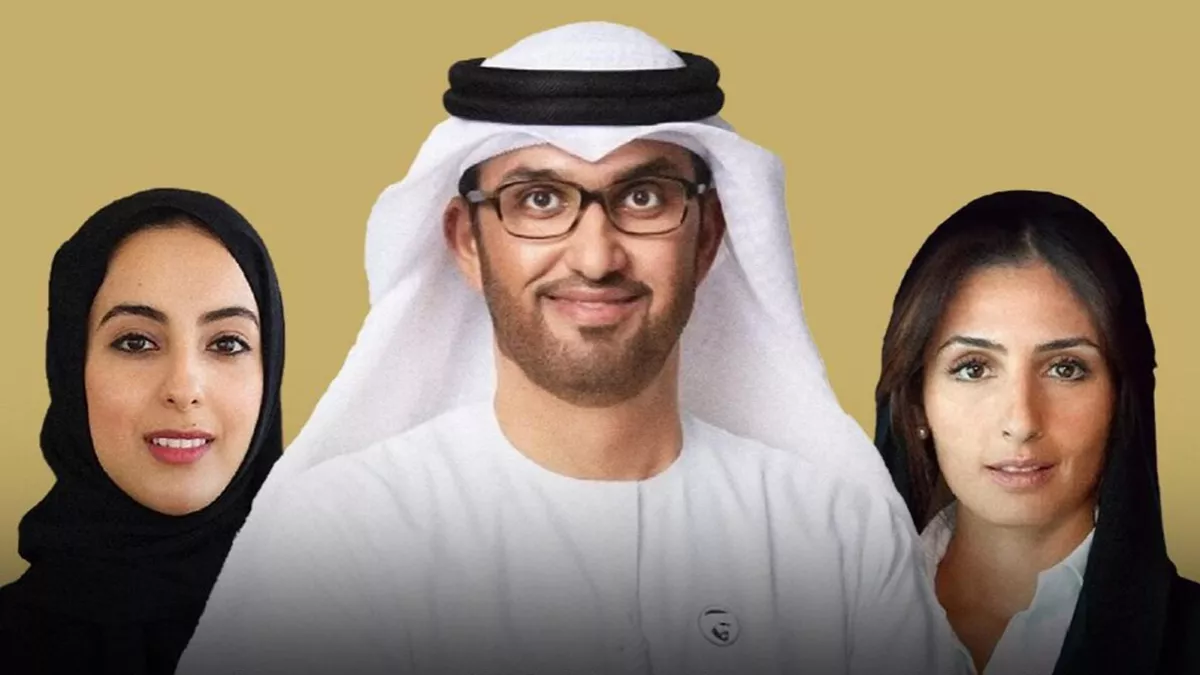
Sheikh Mansour bin Zayed Al Nahyan, Deputy Prime Minister and Minister of Presidential Court, appointed Dr Sultan Ahmed Al Jaber as president-designate for the 28th Conference of the Parties (COP28). A number of top climate officials and champions were appointed today as the UAE gears up for COP28, which it will be hosting this year. Al Jaber has been serving as the country's special envoy for climate change. Shamma Al Mazrui, Minister of State for Youth Affairs; and Razan Al Mubarak, president of the International Union for Conservation of Nature (IUCN), will join Al Jaber’s COP28 UAE team as the youth climate champion and UN climate change high-level champion, respectively.
The UAE is set to host the annual climate summit at Expo City Dubai from November 30 to December 12. The appointments come at a pivotal moment, as the world faces increasing climate impact and challenges to energy, food and water security and reversing biodiversity loss.
Limiting global warming to 1.5C will require significant reductions in emissions, a pragmatic, practical and realistic approach to the energy transition and more help for emerging economies. The UAE is committed to multilateral cooperation and an inclusive process that brings together emerging economies with developed nations, civil society, and business to achieve the solutions and the pace of change required.
Dr Al Jaber is Minister of Industry and Advanced Technology (MoIAT); has been serving as Special Envoy for Climate Change for two terms; and played a proactive participatory role at over 10 COPs, including the historic Paris COP21 in 2015. He is the first CEO to ever serve as COP president, having played a key role in shaping the country’s clean energy path. As the founding CEO of Masdar, he has overseen its mandate to accelerate the adoption of renewables within the UAE, across the region, and globally.
Masdar has made substantial contributions to the UAE’s renewable energy targets, to date, playing a key role in expanding the country’s portfolio with clean energy investments in over 40 countries, including several developing countries in Africa and Asia and in vulnerable island states.
As CEO of Adnoc since 2016, Dr Al Jaber has played a transformative role in decarbonising and diversifying the company’s operations and investments, placed sustainability at the heart of its business, and spearheaded a drive to make today’s energies cleaner while investing in the clean energies of tomorrow.
Adnoc is investing $15 billion over five years in its decarbonisation strategy and its new low-carbon solutions business, under Al Jaber’s leadership, including the expansion of its carbon capture capacity to 5 MMTPA by 2030 and its shareholding in Masdar, as it delivers on its target to reduce its carbon intensity by 25 per cent by 2030 and its ambition to reach net-zero by 2050.
Throughout his career, he has pioneered a practical and responsible approach to accelerating the energy transition that embraces climate action, energy accessibility, energy security and economic growth.
As COP28 president-designate, Dr. Al Jaber will play a crucial role in leading the intergovernmental process, building consensu, and driving ambitious climate outcomes with a broad range of partners, including business and civil society.
“This will be a critical year in a critical decade for climate action. The UAE is approaching COP28 with a strong sense of responsibility and the highest possible level of ambition. In cooperation with the UNFCCC and the COP27 Presidency, we will champion an inclusive agenda that ramps up action on mitigation, encourages a just energy transition that leaves no one behind, ensures substantial, affordable climate finance is directed to the most vulnerable, accelerates funding for adaptation and builds out a robust funding facility to address loss and damage," Dr Al Jaber said.
He added: “COP28 will undertake the first ever Global Stocktake (GST) since the Paris Agreement. The GST will provide the foundation to build momentum for this and future COPs and the UAE will look for an ambitious outcome in response to the GST from the negotiation process. This will be a critical moment to mobilise political will to respond to what the science tells us will need to be achieved to remain on target and limit global warming to 1.5C by 2050.”
